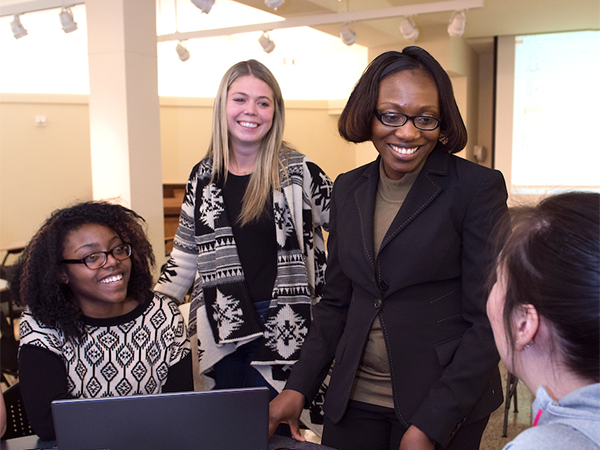
Research shows that managers and supervisors who take time for reflection provide more strategic vision and help to their teams. So as you close out this academic year and begin planning for the next, take a moment to think about the new norms and practices that have contributed to employee engagement and productivity and the things you’d like to change.
As you reflect back and look forward, consider how the pandemic has affected the five core practices for building strong teams.
A clear purpose
Teams are successful when there is a clear and agreed upon purpose for the team. This includes outcomes and expectations for the team.
Did your team’s purpose or critical tasks change over the last year? If so, how? How did you ensure that your team stayed focused and committed to their purpose and core function?
Defined roles and responsibilities
Having clear roles and responsibilities helps to alleviate confusion and improve processes and decision-making. This is especially true when roles and responsibilities are aligned with an employee's strengths and knowledge.
How did roles and responsibilities shift to accommodate employees’ changing needs due to the pandemic while carrying out your critical function? Which changes worked and which did not?
Agreed upon norms and expectations
Agreed upon norms and expectations foster psychological safety, which is a shared belief that the team is safe for interpersonal risk taking. Norms and expectations were definitely affected by the pandemic and psychological safety has never been more important.
Which new norms worked to support your team's wellbeing and new environment? How did you support psychological safety and show compassion? What adjustments need to be made in the future?
Clear decision making processes
Being intentional and clear about how decisions are made helps teams avoid conflict, wasted effort, and make more informed decisions.
Many supervisors are finding they have to make decisions faster, but also with more input and transparency than before. How are you managing these changes? How does the team know who gets to make a final decision, who gets input, and who gets a "veto"? How do you communicate when a decision has been made?
Resilience
Resilience is the ability to cope with a crisis and the pandemic is undoubtedly a crisis. Faculty and staff need to know that they have a manager who supports them during times of high stress.
How did you encourage employees to seek wellness and wellbeing? How did your relationships with your team members change as a result of the merge of our personal and professional lives?
Also, think about doing some reflection with your team:
- What have we done well given all of the circumstances and events of this past year?
- What has not gone well? What would we do differently today?
- What did we learn about the work?
- How will our experiences over the last year shape the way we work and our relationships with each other going forward?
Finally, take time to celebrate all that you’ve accomplished this year. Give yourself praise where you’ve done well and grace in the areas where you would have liked to have done more. Pause to take care of yourself if needed, then move forward smarter and wiser.

